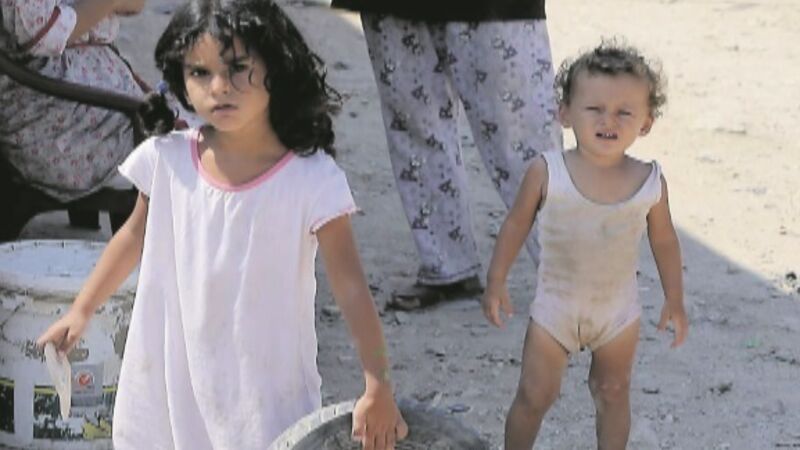Syrian children of the scrapyard: This is wrong on so many levels

STANDING in a scrap-metal yard in northern Lebanon that doubles as tented settlement for Syrian families who these days are called “refugees”, two children before me play with a discarded microwave and bits of rusted iron.
These are the only “toys” they have.













